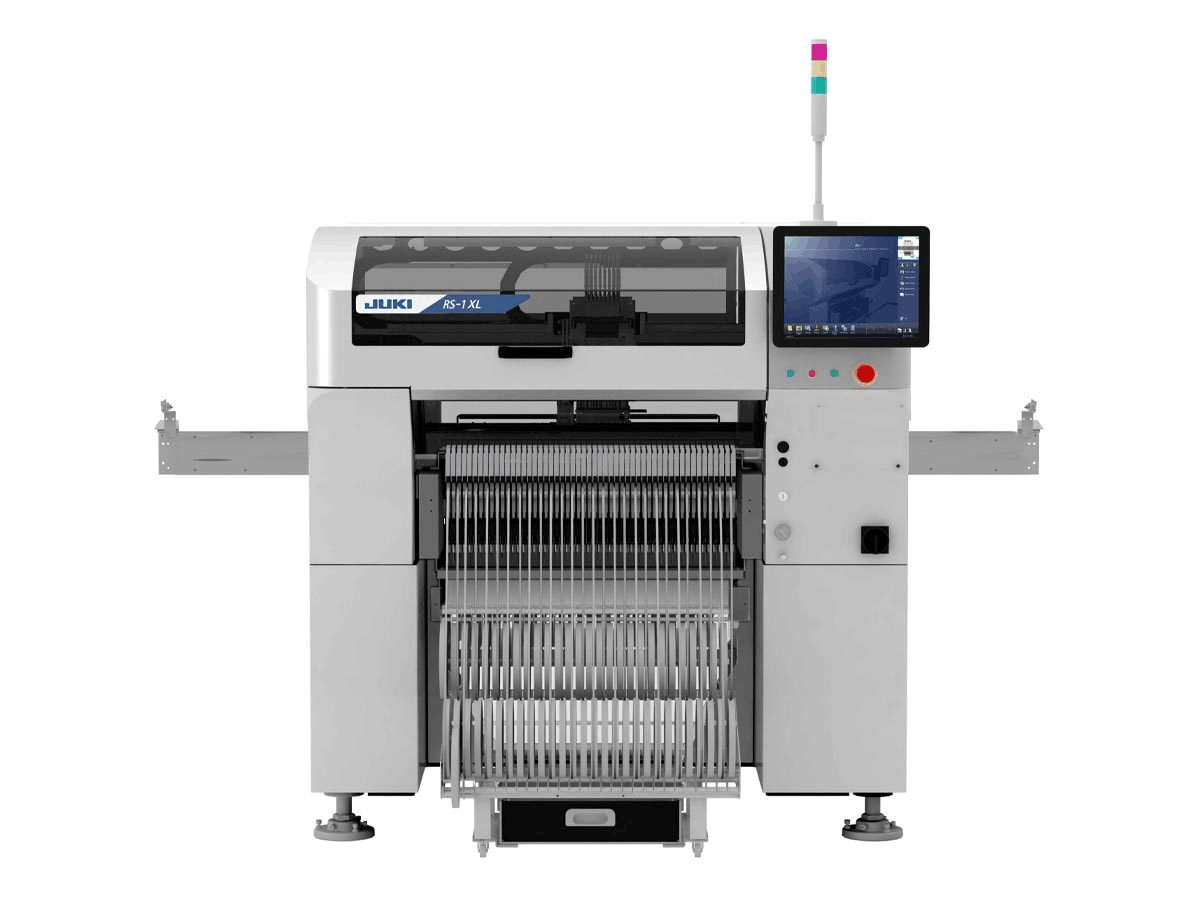Content Menu
● Introduction to Juki SMT Machines
>> The Evolution of Juki SMT Machines
● Key Features of Juki SMT Machines
● Applications of Juki SMT Machines
● Benefits of Using Juki SMT Machines
● Challenges in Using Juki SMT Machines
● Future Trends in Surface Mount Technology
● Conclusion
>> Frequently Asked Questions
Introduction to Juki SMT Machines
Juki SMT machines are recognized as some of the most advanced and reliable equipment in the surface mount technology (SMT) sector. As a leading Juki SMT machine supplier, Global Soul Limited (GS-SMT LTD) specializes in providing these sophisticated machines to enhance manufacturing efficiency and precision in electronics assembly. Founded in 2011 and located in Shenzhen, China, GS-SMT LTD has positioned itself as a key player in the global electronics market, offering comprehensive solutions for SMT.
This article delves into the features, benefits, applications, and challenges of Juki SMT machines, while also addressing common questions related to their use in the electronics industry.
The Evolution of Juki SMT Machines
Juki Corporation has been a pioneer in the SMT industry since its inception. The company introduced its first placement machine in 1987 and has continued to innovate ever since. With over 45,000 machines installed worldwide, Juki has established a reputation for high-quality, reliable equipment that meets the demands of modern electronics manufacturing.
Key Features of Juki SMT Machines
Juki SMT machines are equipped with several advanced features that make them stand out in the market:
1. High-Speed Placement: Models like the Juki RS-1 can achieve placement speeds of up to 47,000 components per hour (CPH), making them suitable for high-volume production environments.
2. Wide Component Range: Juki machines can handle a variety of component sizes, from small 0201 metric components to larger parts measuring up to 50mm x 150mm. This versatility allows manufacturers to produce diverse product lines without needing multiple machines.
3. Advanced Vision Systems: Juki's innovative vision systems ensure precise placement accuracy, typically within ±35μm. This capability is essential for maintaining quality in high-density PCB layouts.
4. Modular Design: The modular nature of Juki machines allows for easy upgrades and customization based on specific production needs. This adaptability is crucial for manufacturers looking to scale their operations efficiently.
5. User-Friendly Interface: Juki machines come equipped with intuitive software that simplifies programming and operation, reducing the learning curve for new users

Applications of Juki SMT Machines
Juki SMT machines are utilized across various industries due to their versatility and efficiency:
- Consumer Electronics: Smartphones, tablets, and laptops benefit from the compact designs made possible by SMT.
- Automotive Electronics: Modern vehicles incorporate numerous electronic systems that require reliable and efficient assembly processes.
- Medical Devices: Precision is critical in medical technology; thus, Juki's high placement accuracy is a significant advantage.
- Industrial Equipment: Many industrial applications rely on robust electronic systems that can be effectively assembled using Juki machines.
Benefits of Using Juki SMT Machines
Integrating Juki SMT machines into manufacturing processes offers numerous advantages:
1. Increased Production Efficiency: With high-speed placement capabilities and automated operation, these machines significantly reduce assembly time and costs.
2. Enhanced Quality Control: The precision offered by Juki's advanced vision systems helps minimize defects and ensures high-quality output.
3. Cost-Effectiveness: By streamlining production processes and reducing labor costs, manufacturers can achieve better profit margins.
4. Flexibility in Production: The ability to handle various component sizes and types allows manufacturers to adapt quickly to changing market demands.
5. Reliable Support and Service: As a reputable supplier, Juki offers comprehensive support services, including training and maintenance, ensuring that customers can maximize their machine's potential.
Challenges in Using Juki SMT Machines
While there are many benefits to using Juki SMT machines, some challenges may arise:
1. Initial Investment Costs: The upfront cost of purchasing high-quality SMT equipment can be significant, which may deter smaller manufacturers.
2. Maintenance Requirements: Regular maintenance is essential to keep machines running efficiently; neglecting this can lead to downtime and increased costs.
3. Training Needs: Although user-friendly, operators may still require training to fully utilize all features of advanced machines like those from Juki.
Future Trends in Surface Mount Technology
The landscape of surface mount technology is continuously evolving, with several trends shaping its future:
1. Automation Advancements: As automation technology progresses, we can expect even greater efficiencies in manufacturing processes through AI and robotics integration.
2. Sustainability Focus: Manufacturers are increasingly prioritizing sustainable practices in production processes, including energy-efficient machinery and waste reduction strategies.
3. Smart Manufacturing: The rise of Industry 4.0 will lead to more interconnected systems where data analytics plays a crucial role in optimizing production lines.
4. Miniaturization Trends: As electronic devices become smaller and more complex, the demand for high-precision assembly solutions will continue to grow.
Conclusion
Juki SMT machines play a vital role in modern electronics manufacturing by providing efficient, reliable solutions for assembling complex electronic components. Their advanced features make them indispensable tools for manufacturers looking to enhance productivity while maintaining high quality standards. As the industry continues to evolve, Juki remains committed to innovation and excellence as a leading Juki SMT machine supplier.

Frequently Asked Questions
1. What is a Juki SMT machine?
- A Juki SMT machine is a type of automated equipment used for placing surface mount components onto printed circuit boards during manufacturing.
2. What are the key features of Juki SMT machines?
- Key features include high-speed placement capabilities, wide component range support, advanced vision systems for accuracy, modular design for flexibility, and user-friendly interfaces.
3. In which industries are Juki SMT machines commonly used?
- They are widely used in consumer electronics, automotive electronics, medical devices, and industrial equipment manufacturing.
4. What advantages do Juki SMT machines offer?
- Advantages include increased production efficiency, enhanced quality control, cost-effectiveness, flexibility in production processes, and reliable customer support.
5. What challenges might users face with Juki SMT machines?
- Challenges may include initial investment costs, maintenance requirements, and the need for operator training.



















